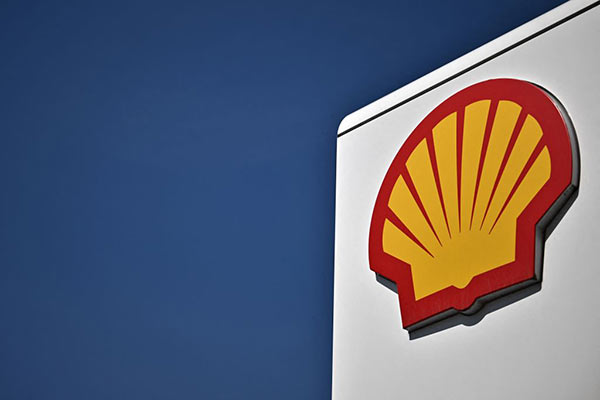ii view: lower costs help Shell profits exceed City forecasts
Focused on shareholder returns and with net debt falling, we assess prospects for this giant of the FTSE 100 index.
1st August 2024 11:25
by Keith Bowman from interactive investor

Second-quarter results to 30 June
- Adjusted profit of $6.29 billion, up from $5.07 billion in Q2 2023
- Quarterly share buyback of $3.5 billion, unchanged from Q1
- Quarterly dividend of $0.344 per share, unchanged from Q1
- Group net debt of $38.3 billion, down from $40.3 billion in Q2 2023
Chief executive Wael Sawan said:
“Shell delivered another strong quarter of operational and financial results. We further strengthened our leading LNG portfolio, and made good progress across our Capital Markets Day 2023 financial targets. We continue to demonstrate that we are delivering more value with less emissions."
- Invest with ii: What is a Managed ISA? | Open a Managed ISA | Top UK Shares
ii round-up:
Energy major Shell (LSE:SHEL) today detailed quarterly profit that beat City forecasts, driven by outperformance at its downstream operations and further cost cutting.
Second-quarter adjusted profit of $6.29 billion rose from $5.07 billion a year ago, exceeding analyst forecasts of $5.98 billion and aided by cost reductions totalling $1.7 billion since 2022, plus the impact of a strong start to the summer driving season.
Shares in the FTSE 100 giant rose 1% in UK trading having come into this latest news up by a tenth year-to-date. That’s ahead of almost unchanged performances for rival BP (LSE:BP.) and renewable energy generator SSE (LSE:SSE). The FTSE 100 index itself is up 8% year-to-date. Brent crude oil has gained 6%.
A newly announced quarterly $3.5 billion share buyback program is unchanged from the prior first quarter. so is the quarterly dividend payment of $0.344 per share, although it's more than the $0.331 paid in Q2 2023.
Profit from downstream, or marketing operations including forecourt outlets climbed to $1.08 billion year-over-year, surpassing forecasts of $819 million and the $894 million achieved a year ago.
Less favourably, profit of $1.08 billion at Shell's Chemicals and Products division missed forecasts by almost 10%, hit by a tough performance for trading activities.
Group net debt of $38.3 billion fell from $40.3 billion a year ago, reducing gearing to 17% from 17.7% at the start of 2024.
Third-quarter results are scheduled for 31 October.
ii view:
Formerly Royal Dutch Shell, and having moved its headquarters to the UK in 2022, the company employs over 100,000 people across 70 countries. Integrated Gas accounts for its biggest slug of profits at around 37%, followed by Upstream ops at 33%, Marketing and Chemicals each at 15%, and a small loss for Renewables and Energy Solutions. Competing against rivals such as TotalEnergies SE (EURONEXT:TTE) and even SSE given its renewables business, Shell’s strategy includes further simplifying the company and sharpening performance.
For investors, the tough economic outlook, particularly in China, continues to offer uncertainty regarding future energy demand. Geopolitical tensions and the speed with which the West’s relationship with Russia changed should not be forgotten. Windfall taxes introduced in reaction to higher energy prices and the war in Ukraine, persist, while Shell’s own dialling back of investments in climate friendly operations does not sit comfortably with many investors.
- UK dividends hit record quarterly high, but 2024 outlook cut
- High-yield HSBC delivers fresh show of strength
- Insider: bosses spend over £¼m at these three companies
To the upside, a diversity of operations across oil, gas, chemicals, and alternatives regularly allows one area of strength to counter another of weakness. Uncertainty of supply, focused on a possible widening of the Israeli conflict currently offers support to the oil price. Expected interest rate cuts this year could boost demand for energy, while Shell’s net debt, swollen during the pandemic, has slowly reduced.
In all, and despite continued risks, significant cashflows underpinning a dividend yield of over 3.5% and a consensus analyst fair value estimate above £32 per share, should guarantee the loyalty of shareholders.
Positives:
- Diversity of operations
- Reducing net debt
Negatives:
- Uncertain economic outlook
- The weather can raise operational challenges
The average rating of stock market analysts:
Buy
These articles are provided for information purposes only. Occasionally, an opinion about whether to buy or sell a specific investment may be provided by third parties. The content is not intended to be a personal recommendation to buy or sell any financial instrument or product, or to adopt any investment strategy as it is not provided based on an assessment of your investing knowledge and experience, your financial situation or your investment objectives. The value of your investments, and the income derived from them, may go down as well as up. You may not get back all the money that you invest. The investments referred to in this article may not be suitable for all investors, and if in doubt, an investor should seek advice from a qualified investment adviser.
Full performance can be found on the company or index summary page on the interactive investor website. Simply click on the company's or index name highlighted in the article.